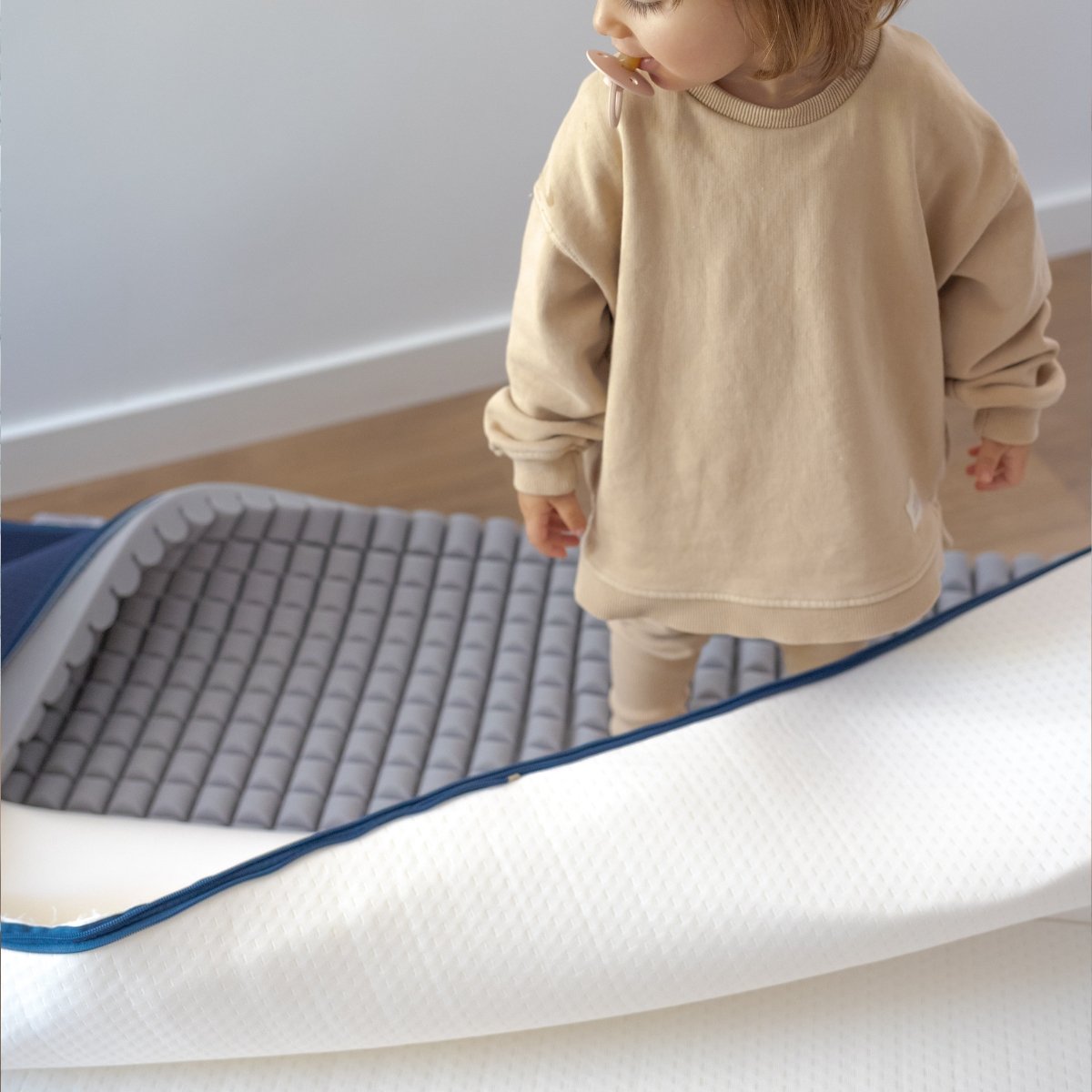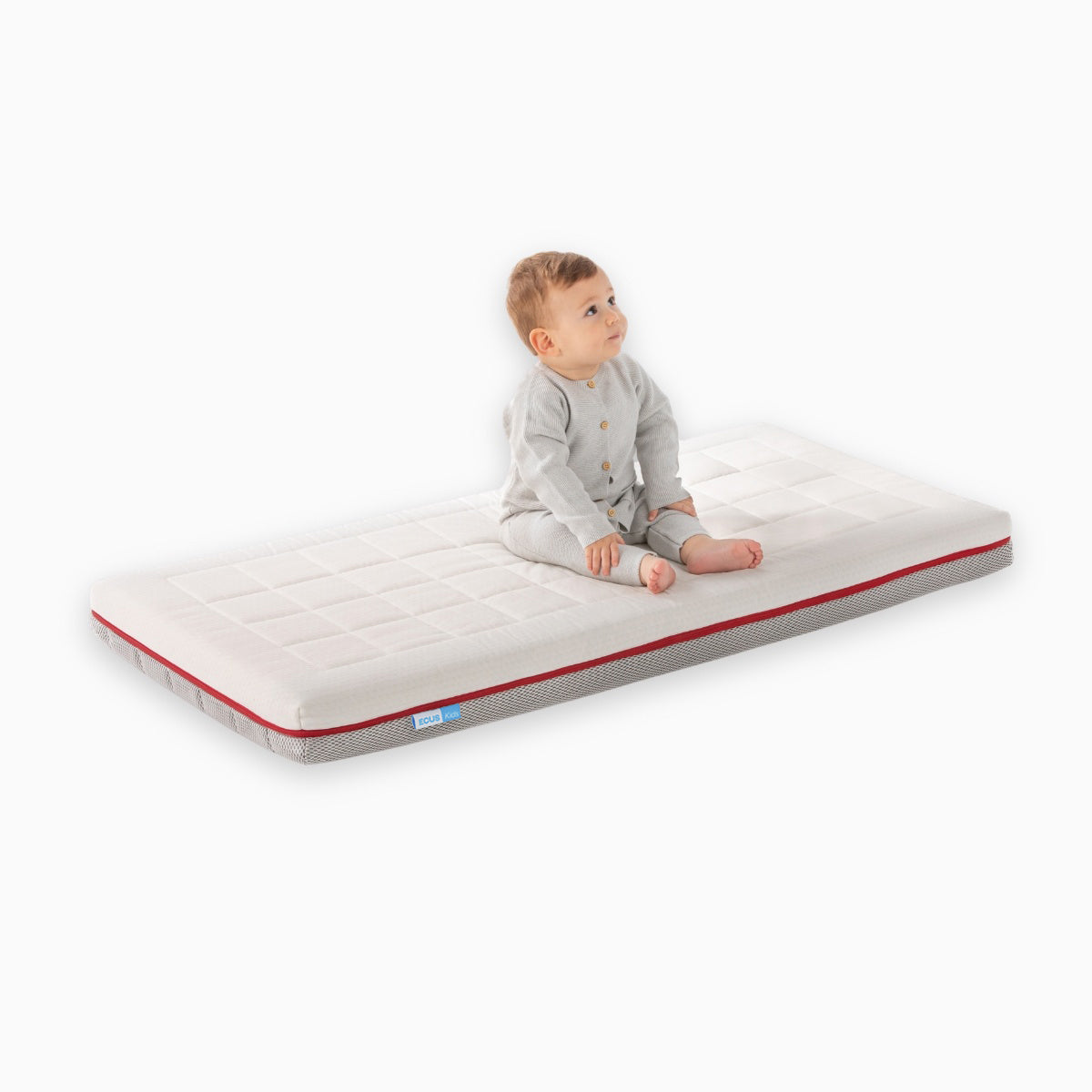About 60% of babies have difficulty sleeping and they also tend to wake up frequently during the night. Sleep problems in babies can significantly affect both the babies themselves and their moms and dads, on a physical, mental, and emotional level.
That babies have sleep problems and that 1 in 4 cannot sleep through the night may be largely due to the lack of a proper daily sleep routine.
Little ones are not born with the ability to know what is day and what is night, they are not born with established patterns of sleep and wakefulness, so it is extremely important to teach them the difference between them and when it is time to sleep. The role of moms and dads is extremely important, as they must teach their little ones to sleep, create sleep habits for them, etc.
When they wake up during the night, not all babies know how to fall back asleep on their own. If parents rock or feed them to help them sleep, or put them to sleep in their arms, this can become a pattern and the baby will always need to be in their arms to fall back asleep, making it much harder for them to learn to sleep alone.
You can help your baby sleep if you recognize a series of signs that indicate they are sleepy (such as rubbing their eyes, yawning, or looking away), if you teach them to fall asleep on their own, and if you comfort them when they wake up.
Babies, especially from 6 months onwards, may have difficulty sleeping due to the anxiety caused by the temporary separation from their parents, overstimulation, or extreme tiredness or over-tiredness.
Tips to help your baby sleep
To help them sleep, you can follow these tips:
1. Establish a bedtime routine. You can include activities such as giving them a bath with warm water before bed, reading a story with dim light, giving them a massage while applying cream, or rocking them while singing or playing a soft and calm song. These signals will indicate to your baby that bedtime is approaching and will prepare them for rest.
2. Avoid stimulation and activities close to bedtime. Avoid exposure to light, screens, and active games, as they can interfere with the production of melatonin, the sleep hormone.
3. Holding and comforting them during the day can help them feel more secure at night and learn to handle separations.
4. Place the baby in the crib when they are drowsy, but before they fall completely asleep. This will allow them to learn that they must calm down on their own and will prevent dependence on certain habits, such as being held or rocked, to fall asleep.
5. Attend to their basic needs before going to sleep. Make sure they are not hungry or thirsty, that they are comfortable, and that they have a dry diaper. Any discomfort will cause them to wake up more.
6. Create a restful environment with a comfortable, dark, and quiet room. Make sure the room temperature is appropriate and that the baby sleeps safely in their crib.
7. Provide security when they are scared or wake up with night terrors, but do not take them out of the crib or turn on the light.
8. When they cry, show them that you are next to them with gentle movements and soothing, or simply staying by their side until they fall asleep again. Then leave the room quietly. Repeat this as many times as necessary whenever they cry or call for you.












